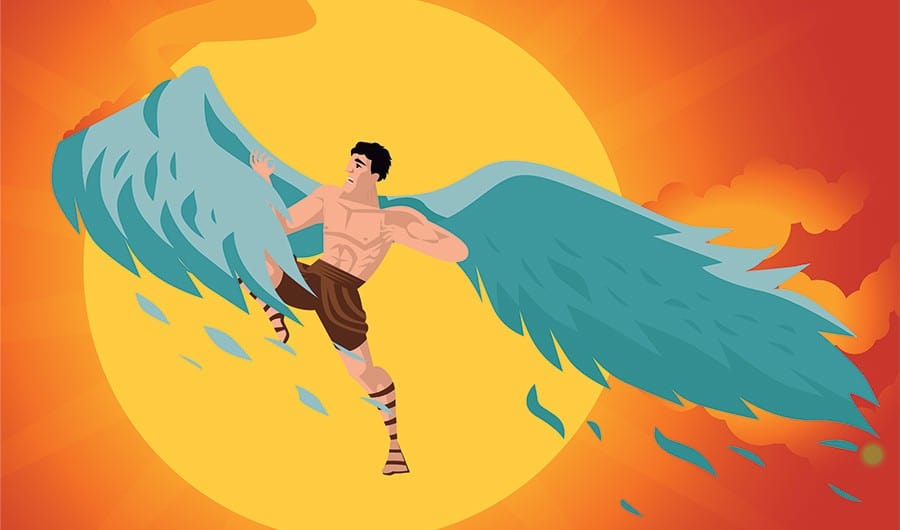
In Greek mythology, Icarus was the son of the master craftsman Daedalus. Daedalus had been imprisoned by King Minos on the island of Crete. He fashioned two pairs of wings from wax, so that he and his son could escape. Daedalus warned his son not to fly too close to the sun , but Icarus became overexcited and flew too close, causing the wax to melt and he fell into the sea and drowned.
The story of Icarus is a metaphor for self-sabotage through ego and confidence. We are all susceptible to it – we become overconfident and fly too close to the sun, only to have our dreams dashed and our hopes destroyed. This is known as the Icarus Syndrome (as written by Peter Beinart).
Ok, but weren't we just talking about imposter syndrome last week? I thought we were sabotaging ourselves with a LACK of confidence, not an abundance of it.
It's interesting how our lives progress; as we work with more people from different backgrounds, we are exposed to a variety of thoughts and perspectives. This week, while reading an article on imposter syndrome over on forbes, I immediately thought of leaders who act in complete opposition to these statements and had turmoil in the face of over-confident decision-making. But in a turn of events, these leaders had something similar in common with those embodying imposter syndrome in that they were both victims of self-sabotage.
Where am I going with this? There is almost a silver lining here in that when you know something about yourself , you can strategize around it in tandem with your self-improvement. Having started my career younger than most, I adopted a 'dare to suck' attitude that made me prone to taking on many risks that inevitably blew up in my face. Were some of these surrounded by an air of misguided confidence (aka, I was getting cocky )? Most definitely! But I recognized, before learning the theory, I had a modus operandi of 'Quick Start' and before I let my tendencies disrupt operational maturity , to have a leadership team that balanced ⚖️ out my MO.
This opens up an interesting notion that we as leaders can seize these biases, or some may call them faults, and find ways to learn , grow , and adapt our leadership styles to be successful beyond our means. Even more, build out teams that complement each other both in professional acumen but also in work ethic tendencies.
Now I am going to save the comments on Kolbe, modus operandi, and well-balanced leadership teams for another day, but going forward I encourage us all to use Icarus as our new mascot, almost an anti-hero of sorts, to remind us of the balance we must maintain through our own mental fortitude AND support systems to be successful.
Don't let either of these syndromes prevent you from taking or avoiding risks and achieving your goals . Remember, you are capable of anything you set your mind to. Just don't fly too close to the sun .
Do you have Icarus syndrome or imposter syndrome? How do you deal with it? Share your stories in the comments below!


K7 Leadership
(619) 249-8121
[email protected]
© 2022 K7 Leadership. All Rights Reserved.